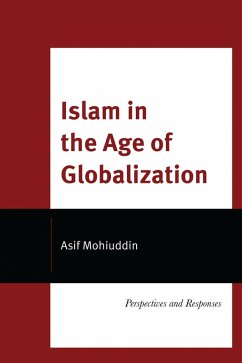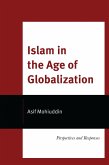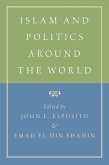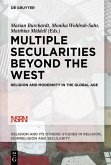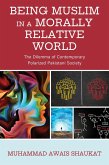Globalization has been a central theme in political, economic, cultural, and religious debates since the turn of the century. While some see it as a solution, others consider it the root of our problems. The intensification of cultural and military warfare, and the "West v. the Rest" mentality, fuels a deep-seated ethnocentrism. Religion, meanwhile, faces scrutiny from various fundamentalisms and grand narratives. Many modern Muslim thinkers are skeptical of globalization, perceiving it as a homogenizing force that spreads Western culture and concentrates power among a few nations. They argue that Islam promotes human oneness and provides an intellectual and spiritual framework for a more civilized and universal approach to globalization, opposing the Western-centric hegemonic tendencies. The goal of this book is to demonstrate that Islam favors globalization in its original, voluntary form, as opposed to the violent imposition of the West on the East. It will examine Muslim responses to globalization and their attempts to find global answers to local problems in their own local, regional, national, and global contexts. Several academic works have explored various aspects of globalization, focusing on tensions and conflicts, such as power politics, religious authority, and legislative issues. However, there is a notable absence of attention given to the Islamic perspective on globalization, including both appreciation and critique. This book addresses this gap by offering not only a Muslim critique of globalization but also a broader framework for understanding Islam's unique perspective on globalization. Does globalization support the inclusivity that Islam advocates? How does Islam fit into the globalization era? What impact and influence may Muslims have on the future of globalization? What unique prospects does globalization provide Muslims and the Islamic faith? Is Islamic revivalism a reaction to globalization? Alternatives to globalization could exist. What kind of structure will the Islamic globalization paradigm have? In addition to addressing these questions, the book attempts to provide a theoretical framework for Islamic globalization, which incorporates the shuratic practice and the vision of an international community extending beyond the Arabs and non-Arabs. This underscores the importance of historical contexts for contemporary actions and beliefs. In the process the book attempts to extend the debate on Islam and globalization by mapping out the effects of globalization on various aspects of Muslim culture.
Bitte wählen Sie Ihr Anliegen aus.
Rechnungen
Retourenschein anfordern
Bestellstatus
Storno

